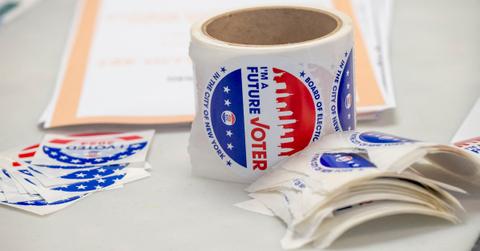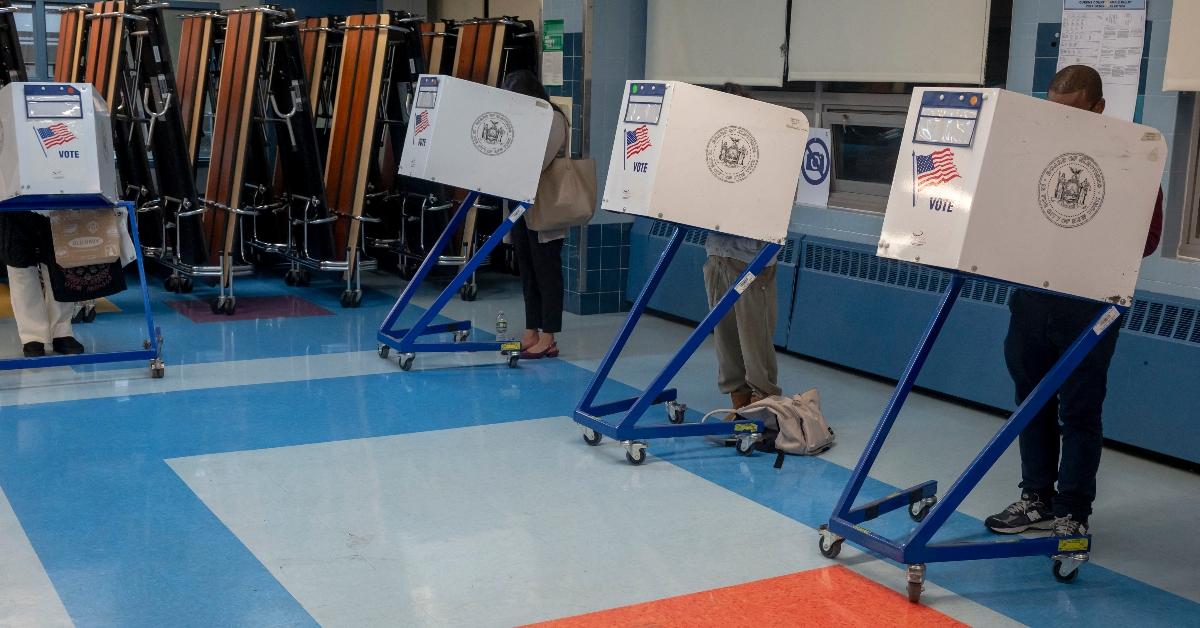The House Passed the SAVE Act and Sent It to the Senate — When Will It Be Voted On?
"This is a show-your-papers law."
Published April 16 2025, 12:46 p.m. ET

There were mixed reactions to the House of Representatives passing the SAVE Act on April 10, 2025. The controversial bill is being described as a tool of voter suppression due to the myriad ways it makes voting more difficult. Supporters argue the SAVE Act will prevent noncitizens from voting in United States elections, but according to state-level audits, this is a rare occurrence, reports NPR.
Under the SAVE Act, one's driver's license won't be sufficient documentation needed to register to vote. It would require a passport, birth certificate, or military records. Many opponents have pointed out the fact that this would disproportionately affect women who changed their last names after they were married. Also, millions of Americans don't have a passport or access to a valid birth certificate. So, when is the Senate voting on the SAVE Act? Here's what we know.

When is the Senate voting on the SAVE Act?
The SAVE Act was received by the Senate the same day it was passed in the House. When it comes to the legislative process, nothing is easy. In order for a bill to be voted on, the Senate must first agree to bring it up. Once the Senate has adopted a motion to proceed, senators might propose amendments to it. Because they are not subject to any debate limit, the motion to proceed, amendment proposals, and even voting on the bill could be delayed.
Unlike the House, amendments proposed by the Senate don't have to be related to the bill itself. This can often result in some out-of-pocket proposals, which in turn could lead to more debates. However, the cloture rule does allow a supermajority to limit debate on a bill, amendment, or motion. The process of reaching a final vote can take at least a week, which means, at the earliest, the SAVE Act will be voted on on April 17, 2025.
The SAVE Act could create a lack of confidence in elections.
Sean Morales-Doyle, director of the Voting Rights and Elections Program at the nonpartisan Brennan Center for Justice, told NPR that the SAVE Act will create a ton of problems for voters. "Our research shows that about 21.3 million American citizens don't have these documents readily available," he said. "This is a show-your-papers law."
Morales-Doyle went on to say that a passport or birth certificate would be needed anytime someone registers or re-registers to vote. "That can be a lot of work," he explained. "It could mean going and finding your birth certificate and proof that you are the person on that birth certificate, because you've changed your name." Because of this, he said voters would need to prepare well in advance of the elections.
The SAVE Act would also do away with mail-in and online registration, which would hit folks in rural areas pretty hard. "There are definitely people who live 10, 20, 50, 100 miles away from the closest election official: people who live in rural places, people who live on tribal lands," said Morales-Doyle. "They're going to have a big burden placed on their ability to get registered." In his opinion, the SAVE Act would foster a lack of confidence in elections.